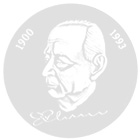Development, Standardization, and Technical Implementation of Digital Video Broadcasting (DVB) Technology
Development, Standardization, and Technical Implementation of Digital Video Broadcasting (DVB) Technology
Television is the most cost-effective medium for distributing information, providing education, and delivering entertainment. Accordingly, the television receiver certainly is the most popular home electronics device worldwide. In the year 2000, a total of about 1.4 billion television sets have been in use. This figure is comparable to the number of fixed telephone sets and cellular phones, all together. It is expected that during the next 10 to 20 years analog TV sets will be replaced by digital sets, creating a multi-billion euro annual business for broadband equipment, consumer electronics, computer, and semiconductor industries.
Digital TV delivers interference and distortion-free audio and video signals with much higher spectrum efficiency. The respective receivers are in general more perfectly engineered than analog ones. Digital TV systems can also seamlessly interface with other communication systems, computer networks, and digital media. They make possible novel data casting and multimedia interactive services. These services are key elements of the digital revolution leading towards the information society.
Over more than 13 years, Digital Video Broadcasting (DVB) solved a considerable number of commercial, scientific, and engineering problems under the common roof of a worldwide initiative known as the DVB Project. This initiative was founded 1993 with the aim of establishing European Telecommunication Standards for satellite transmission (DVB-S), distribution via cable (DVB-C), terrestrial broadcasting (DVB-T), and for mobile use in handheld devices (DVB-H). From its inception until today, the technical and scientific work towards these standards has been guided by the so-called Technical Module (TM) of the DVB project under the chairmanship of Ulrich Reimers. Besides managing technical work in TM ad-hoc groups, Ulrich Reimers earned merits for the internationalization of the DVB standard, especially by successfully promoting cooperation with Japan, the USA, and Latin America. It appears natural to give, solely to Ulrich Reimers, honors for the great success reached by the breakthrough of DVB becoming a leading standard in the world.
Engineers only accept as a chairman a person highly ranked in the scientific community and with a proven ability to transfer research results into successful products. Those are the strengths of Ulrich Reimers, strengths that he developed during his career at Robert Bosch, as well as in his capacity as Professor of Information Engineering at the Technical University of Braunschweig, Germany. Accordingly, every year since 1999, he has been the recipient of at least one major international research award. His most honorable recognitions include being a Fellow of the IEEE and the first-ever inductee to the Hall of Fame of the International Electrotechnical Commission (IEC). A number of publications name him “Father of DVB”.
Dr. Reimers has also been Guest Editor of the January 2006 “Special Issue on Global Digital Television” of the Proceedings of the IEEE, the flagship journal of the IEEE. While acting in that capacity he proved his talent at motivating many colleagues to cooperate in providing an excellent tutorial on digital TV and related standards. Besides, he has been publishing numerous papers and, in 2004, a well-known book on international DVB standards.
DVB development has not come to an end yet. Broadcasting is about creation, management, storage, delivery, and consumption of valuable content. The focus is now moving to the content itself content protection and copy management, portable content formats, and TV anytime/anywhere. Therefore, it is certainly fair to say that DVB is an example of a truly international organization where an elite group of people works hard to foster the progress of this industry. And Ulrich Reimers is and continues to be at the forefront of all this.
Prof. Dr. Bernhard Walke,
Aachen Technical University
